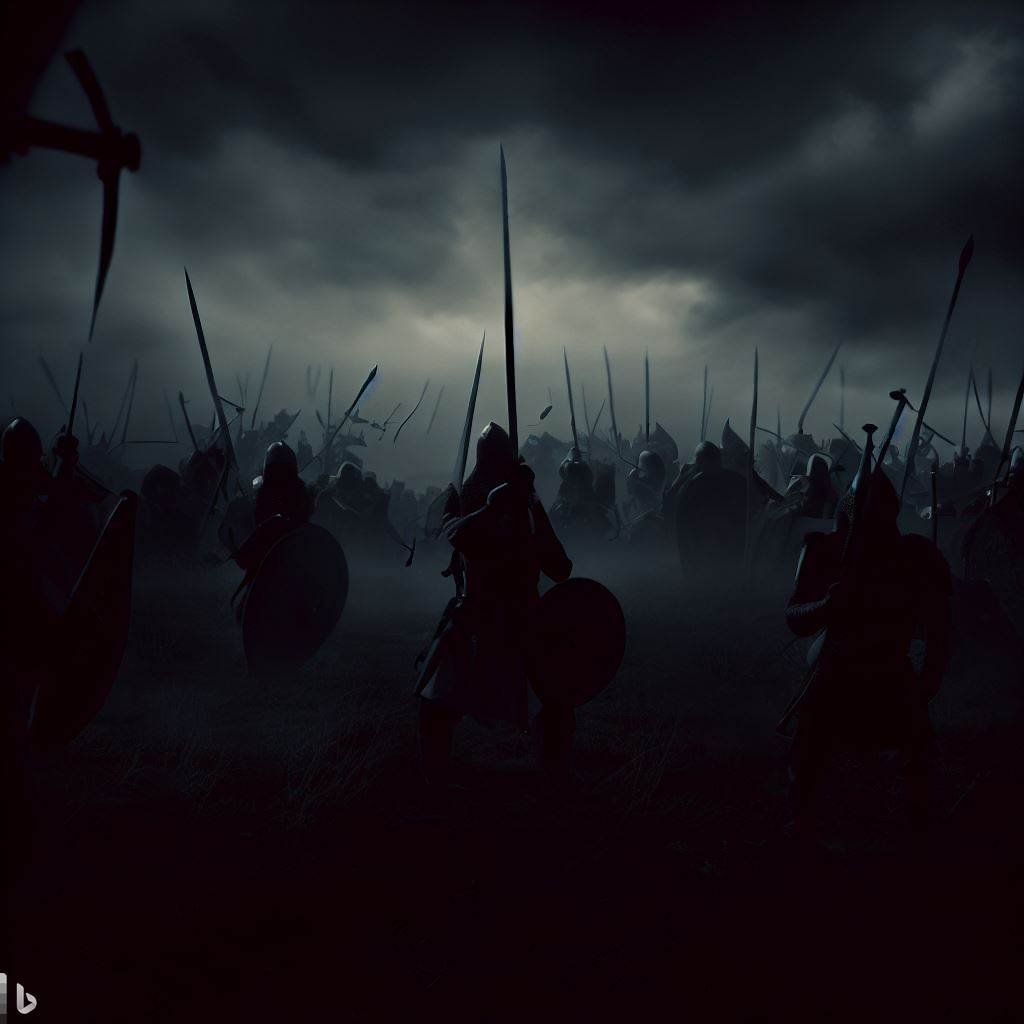
THE BATTLE OF neville’s cross
The English perspective: The Soldier of Neville’s Cross
The Battle of Neville’s Cross: The Memories of Thomas Warwick
The day dawned chilly and cold as our company marched through the mist. My name is Thomas Warwick, an Englishman born and raised in North Yorkshire. As an archer, the longbow was my instrument of death, and the forthcoming Battle of Neville's Cross would see it tested like never before.
The word of the Scots ravaging the North had been the talk of every tavern and household, igniting both fear and anger. But my comrades and I were determined to make a stand. Our homeland was at stake.
We had marched with purpose under Archbishop William de la Zouche and Lord Ralph Neville. By 16 October, we reached Auckland Park, our breaths forming wisps in the chilly autumn air. Every step echoed with determination, every heartbeat with pride.
Thomas Warwick - English Soldier
That foggy morning of 17 October still haunts my dreams. I recall the swift rustling of arrows being nocked and the distant mutterings of Scottish soldiers. The mist played tricks on our eyes. But when the shadows of William Douglas and his men emerged from the fog, our surprise was real, and for them – deadly.
"Our enemies approach!" came the call. The two rear divisions, including mine, sprang into action, decimating Douglas's ill-fated scouting party. Victory in that skirmish was swift. The Scottish survivors, with their tails between their legs, fled back to their camp.
It wasn't long before the full magnitude of the battle revealed itself. The sight of the Scottish army, spread across the horizon, was both magnificent and terrifying. The great stone marker of Neville’s Cross looked down on the field, as if predicting the doom that was to come.
Our English forces, with our distinct divisions, looked formidable. With the sun slowly climbing, the stage was set. Arrows were at the ready, glinting menacingly. We could sense the Scots' trepidation as they remembered their past defeats and their lack of archers.
The wait was torturous, but the first command to release our arrows shattered the silence. Death soared through the air, finding mark after mark amongst the Scottish ranks. Their screams and cries only fuelled our fervor.
The courage of the Scots couldn't be denied. They charged. Yet the uneven terrain hindered them. As an archer, every Scottish charge felt like shooting fish in a barrel. But as they closed in, I caught glimpses of brutal hand-to-hand combat. Metal clashed, screams pierced the air, and blood stained the land.
King David II himself seemed like a titan among men, resisting arrows and standing tall. But even titans have their weak moments, and an arrow found his face. My comrades and I watched in awe as the King was captured, signalling the end of the fierce battle.
The Battle of Neville’s Cross
That night, as we marched across the Durham countryside, the cries of the wounded and the dying haunted our every step. The name 'Battle of the Red Hills' felt fitting, for the land was drenched in blood.
King David's parade through the city streets was a spectacle. Even in defeat, he held an air of nobility. But for me, the true weight of the battle only sank in later. We had defended our homeland, yet the cost was immense.
Every time I walk near Red Hills, I'm reminded of that day. The scars of the battle have long faded from the land, but the memories remain, vivid and intense, forever etched in the minds of those who were there.
Altnerative Reads
Source Texts


